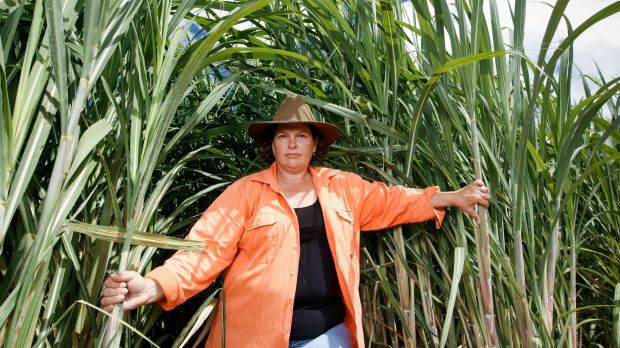George Christensen's regular squabbles with the Turnbull government are well-known. He has threatened to quit over the backpacker tax, same-sex marriage and the direction of the Coalition.
But the issue which has brought the maverick MP closest to cutting the cord - and blowing up the Parliament - is one that has received scant attention outside of Queensland.
More National News Videos
Is George going rogue?
Nationals MP George Christensen reportedly has a resignation letter penned that, if he hands in, will cause all sorts of trouble for the government.
For three years, sugarcane growers in that state's Burdekin region, south of Townsville, have been sucked into a looming crisis over their contracts to supply sugarcane.
The Singapore-owned conglomerate Wilmar, which bought CSR Sugar's mills six years ago, is seeking control over marketing as well as milling. But growers want the choice to use their old single-desk collective, Queensland Sugar Limited, which has been able to garner a better price for farmers than Wilmar in recent years.

There are several other fine points to the dispute between Wilmar and CSL. But the bottom line is that until an agreement is reached, growers can't lock in a price for their sugarcane - even as they stare down the barrel of the June harvest.
"It's an Erin Brockovich scenario," says Burdekin canegrower Peter Hall. "I can't price cane so I'm losing money. I'm not doing anything. I'm sitting here waiting for something to happen. The whole town's like that. Shops are closing."
The growers don't have many options. Wilmar owns every sugar mill in the district, and the nature of the product makes long-distance transportation impossible.
"We can't afford to send it off to anywhere else because by the time we've sent it there, it will no longer be viable. So we are stuck with having to use the one company," says Paula Langdon, director of Kalamia Cane Growers, from her farm in the Bruce Highway town of Ayr.

"People are considering their options [because] they feel they don't have control over their own assets. The morale in the area is very low and we have very low morale in our own town. If cane doesn't do well, the town doesn't do well. There's no rocket science in that."
Enter the politicians. For many months, Deputy Prime Minister Barnaby Joyce has warned Wilmar of federal intervention if a deal cannot be reached. The state's LNP opposition leader, Tim Nicholls, has called on both sides to "bury their egos and sort this out". One Nation leader Pauline Hanson even offered to fly to Singapore in search of answers, complaining the government had dumped the issue in the "too-hard basket".

George Christensen agrees. The MP spruiked the need for federal intervention as early as June 2014. Last week he reportedly told confidants he would give the Turnbull government until March 1 to sort out the mess, but then back-tracked from his threat to quit the LNP, declaring he was happy to have at least "elevated the issue".
The Prime Minister is certainly paying attention. A scheduled 10-minute meeting with canegrowers in Canberra last week lasted three quarters of an hour. And the wheels of government are slowly churning into action, with Mr Nicholls promising to introduce legislation next week to compel arbitration.
I just see this as a classic case of the complete misuse of market power
Wilmar insists it can reach agreement with QSL without intervention, as long as the collective is "open to adopting a reasonable commercial approach".
But cane growers are livid with the state Labor government for opposing intervention, accusing Premier Annastacia Palaszczuk of cosying up to Wilmar. The result is a politically counter-intuitive scenario in which Labor is fending off intervention from the nominally free-market Coalition.

Mr Christensen says he's usually against resorting to state intervention, but the clock is ticking and his region's livelihood is at stake.
"The cane farmer has no recourse to anyone at the moment, apart from government," he tells Fairfax Media.
"I just see this as a classic case of the complete misuse of market power. In this case, not only is the outcome not fair, the opportunity isn't fair either."
















66 comments
Comment are now closed